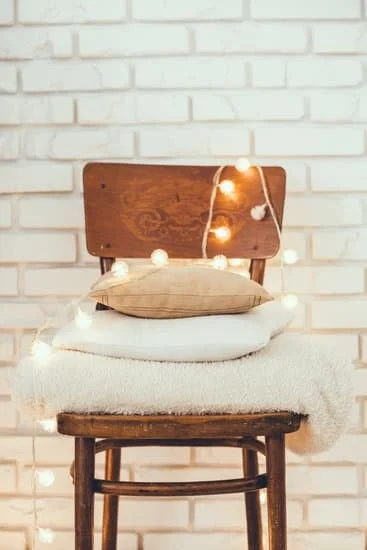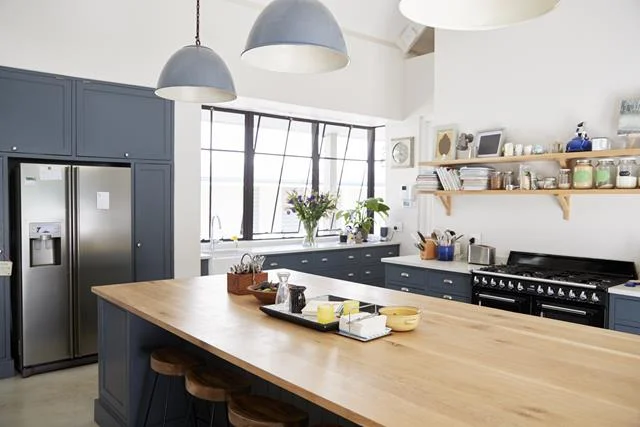Are you passionate about interior design and have a keen eye for home decor? Have you ever considered turning your love for decorating into a profitable business venture?
In this article, we will discuss how to start your own home decor business, a thriving industry that continues to experience growth year after year. Whether you are interested in selling handmade artisanal goods or curating a collection of modern furniture pieces, the home decor market offers plenty of opportunities for aspiring entrepreneurs.
The demand for unique and stylish home decor products has been steadily increasing as more people continue to invest in making their living spaces aesthetically pleasing. From trendy wall art to sustainable furniture, consumers are constantly on the lookout for one-of-a-kind items that reflect their personal style. With the rise in online shopping and interior design shows gaining widespread popularity, now is the perfect time to carve out your niche within this thriving industry.
In this section, we will delve into the various aspects of starting a successful home decor business, from identifying your niche market and creating a strong brand identity to sourcing quality products and establishing an online presence. By understanding the key components of launching a home decor business, you will be well-equipped to take your passion for design and turn it into a profitable endeavor.
So if you’re ready to embark on this exciting journey and make your mark in the world of home decor, read on to discover valuable insights and tips on getting started.
Identifying Your Niche
In the competitive world of home decor, finding your niche is crucial to standing out from the crowd and attracting customers. Your unique selling point (USP) will set you apart from other home decor businesses and give you a clear focus for your products and services.
Understanding the Market
Before identifying your niche, it’s essential to conduct thorough market research. This includes analyzing the current trends in home decor, understanding customer preferences, and identifying gaps or underserved areas in the market. By understanding the market, you can pinpoint a niche that has high demand and less competition.
Identifying Your Passion and Expertise
One way to identify your niche is to consider your own passions and expertise. What aspect of home decor are you most passionate about? Whether it’s eco-friendly products, vintage designs, or modern minimalist styles, aligning your niche with what you are truly passionate about can give your business authenticity and credibility.
Targeting a Specific Audience
Another approach to finding your niche is by targeting a specific audience within the home decor market. This could be based on demographics such as age, income level, or lifestyle. For example, catering to young professionals in urban areas who are looking for affordable yet stylish home decor solutions can be a niche in itself.
By identifying your niche and unique selling point in the home decor market, you can establish a clear direction for your business and create a strong brand identity that resonates with your target customers.
Creating a Business Plan
Creating a solid business plan is crucial for the success of any home decor business. This roadmap will help you outline your goals, identify potential challenges, and determine the steps needed to achieve success in the industry. Here are some key components to include in your home decor business plan:
Market Research and Analysis
The first step in creating a business plan for your home decor business is conducting thorough market research. This involves analyzing the current trends in home decor, identifying your target audience, and understanding the demand for specific products. You’ll also want to research your competitors to gain insight into their strategies and pricing.
Product Line and Suppliers
In this section, detail the specific types of home decor products you plan to offer. Whether it’s custom furniture, handmade textiles, or vintage accents, clearly define your product line. Additionally, outline potential suppliers or sources for these products, considering factors such as quality, uniqueness, and cost.
Marketing and Sales Strategy
Your business plan should also include a comprehensive marketing and sales strategy. Detail how you plan to promote your products, reach your target audience, and ultimately drive sales. This could include tactics such as social media marketing, influencer partnerships, or participation in home decor trade shows.
By including these key components in your home decor business plan, you will set a strong foundation for launching and growing your venture in the thriving home decor industry.
Legal Requirements
When starting a home decor business, understanding the legal requirements is crucial to ensure that your venture operates within the law. One of the first steps in this process is selecting a suitable business structure, such as a sole proprietorship, partnership, limited liability company (LLC), or corporation. Each structure has its own legal and tax implications, so it’s important to consult with a legal professional or accountant to determine which option is best for your specific situation.
Another key aspect of the legal requirements for a home decor business is obtaining the necessary permits and licenses. Depending on your location, you may need a general business license, sales tax permit, and/or zoning permit to legally operate your business. Additionally, if you plan to have a physical storefront or warehouse, you will need to comply with local building codes and regulations.
Furthermore, it’s essential to be aware of any intellectual property considerations when starting a home decor business. This includes trademarking your brand name and logo, as well as ensuring that the products you sell do not infringe on any existing patents or copyrights. Taking these steps can protect your business from potential legal disputes and safeguard your brand identity in the long run.
| Legal Aspect | Consideration |
|---|---|
| Business Structure | Select the most appropriate structure with legal and tax implications. |
| Permits and Licenses | Obtain necessary permits including general business license and sales tax permit. |
| Intellectual Property | Trademark brand name and logo; ensure products do not infringe on existing patents or copyrights. |
Sourcing Products
When starting a home decor business, sourcing products is a crucial aspect of establishing your brand and attracting customers. The key to success in the home decor industry is offering quality and unique products that set your business apart from competitors.
One way to find such products is by attending trade shows and industry events specifically geared towards home decor and interior design. These events provide an excellent opportunity to connect with suppliers, discover new trends, and source unique products for your business.
Another effective method for sourcing home decor products is by partnering with local artisans and craftsmen. By supporting local talent, you can offer one-of-a-kind pieces that add a special touch to your product inventory. This not only gives your business a unique selling point but also helps support the local community.
Additionally, you can explore international suppliers and manufacturers to add diversity to your product range. This allows you to offer a variety of styles and influences in your home decor collection.
Furthermore, tapping into online platforms can be an excellent way to source quality home decor products for your business. Websites such as Etsy, Alibaba, and Wayfair offer a vast array of unique items that can complement your brand’s identity. Additionally, these platforms allow you to connect directly with individual sellers or manufacturers, giving you access to exclusive products that may not be readily available through traditional wholesale channels.
| Method | Description |
|---|---|
| Trade shows and industry events | Connect with suppliers and discover new trends |
| Partnership with local artisans | Support local talent and offer one-of-a-kind pieces |
| Online platforms | Access unique items directly from sellers or manufacturers |
Building Your Brand
When starting your own home decor business, it’s crucial to establish a strong brand identity that sets you apart from the competition. Building a successful brand will help customers recognize and connect with your business, leading to increased sales and loyalty. Here are some key steps to consider when establishing a brand identity for your home decor business:
1. Define your target audience: Identify the demographic and psychographic characteristics of your ideal customers. Understanding who your target audience is will help you tailor your brand messaging and products to meet their needs and preferences.
2. Develop a unique selling proposition (USP): Determine what sets your home decor business apart from other competitors in the market. Whether it’s offering eco-friendly products, personalized design services, or exclusive partnerships with local artisans, clearly define what makes your brand unique.
3. Create a memorable visual identity: Design a logo, choose a color palette, and create consistent visual elements that reflect the personality and style of your brand. These visual components will be used across all marketing materials, packaging, and online platforms, so it’s important to create a cohesive look that resonates with your target audience.
By following these steps to build a strong brand identity for your home decor business, you can establish a compelling and memorable presence in the market that attracts customers and sets you up for long-term success. Remember that building a brand takes time and effort, but the investment will pay off in terms of customer loyalty and business growth.
Setting Up an Online Presence
When starting your own home decor business, having a strong online presence is essential in reaching and attracting customers. Here are some tips for creating a website and utilizing social media to effectively market your products:
1. **Create a visually appealing website:** Your website is often the first impression customers will have of your business, so it’s important to make it visually appealing and easy to navigate. Include high-quality images of your home decor products, clear product descriptions, and an easy checkout process. Consider hiring a professional web designer if you’re not confident in creating the website yourself.
2. **Utilize social media platforms:** Social media can be a powerful tool for reaching potential customers and building brand awareness. Create accounts on popular platforms like Instagram, Facebook, and Pinterest to showcase your products and engage with your audience. Consistently posting visually appealing content and interacting with followers can help build a loyal customer base.
3. **Implement search engine optimization (SEO):** To drive traffic to your website, it’s important to optimize it for search engines. Research keywords related to home decor and incorporate them into your website content to improve its visibility on search engine results pages.
By following these tips, you can effectively establish an online presence for your home decor business, reaching a wider audience and increasing sales potential. Remember that consistency is key when it comes to maintaining an active online presence, so regularly update your website and social media accounts with fresh content to keep customers engaged.
Marketing and Sales Strategies
When starting a home decor business, it is crucial to have effective marketing and sales strategies in place to attract customers and generate sales. One of the first steps is to identify your target market. Understand who your potential customers are, what their needs and preferences are, and how they shop for home decor products. This will help you tailor your marketing efforts to reach the right audience.
Utilizing social media platforms can be a powerful tool for promoting your home decor business. Create visually appealing content that showcases your products and engages with your followers. Platforms like Instagram and Pinterest are especially popular for home decor businesses as they allow you to visually display your products in real-life settings, inspiring potential customers with ideas on how to use your products in their own homes.
Networking with interior designers, real estate agents, and home staging professionals can also be beneficial for generating sales in the home decor industry. Collaborating with these professionals can lead to referrals or partnerships that can expand your customer base. Additionally, consider offering special promotions or hosting events to attract new customers and encourage repeat business. Word-of-mouth referrals can be incredibly valuable in this industry, so providing excellent customer service and high-quality products is key.
Managing Finances
In conclusion, starting your own home decor business can be a rewarding and profitable venture if approached with careful planning and consideration. The home decor industry is booming, and there is ample opportunity for entrepreneurs to carve out their niche and make a mark in the market. By identifying your unique selling point, creating a well-thought-out business plan, understanding the legal requirements, and sourcing quality products, you can set a strong foundation for your home decor business.
One of the most critical aspects of managing a successful home decor business is financial management. Budgeting, pricing, and overall financial planning are essential for the long-term sustainability of your venture. By carefully managing your finances, you can ensure that your business remains profitable and financially healthy. This includes setting realistic budgets, determining appropriate pricing for your products, and keeping track of all income and expenses.
Additionally, building a strong brand identity, setting up an online presence, implementing effective marketing and sales strategies are crucial for attracting customers and generating sales for your home decor business. Utilizing social media platforms and creating an engaging website can help you reach a wider audience and establish yourself as a reputable brand in the industry.
Keeping all these factors in mind can help you create a successful home decor business that stands out in the market while also ensuring its long-term financial stability.
Frequently Asked Questions
How Profitable Is Home Decor Business?
The home decor business can be quite profitable for those with a keen eye for design, the ability to spot trends, and a knack for marketing their products or services effectively. With the right mix of creativity, business acumen, and an understanding of customer preferences, individuals can potentially earn a significant income from this industry.
How Do I Start My Own Home Decorating Business?
Starting your own home decorating business involves several key steps. First, you’ll need to develop a strong understanding of design principles and trends, as well as how to work within different budgets and spaces. Next, you’ll need to create a solid business plan that outlines your target market, pricing strategy, and marketing approach.
Consider obtaining relevant certifications or education in interior design to boost your credibility. Finally, you’ll need to legally establish your business by registering with the appropriate authorities and obtaining any necessary permits or licenses.
What Do You Need to Start a Decorating Business?
To start a decorating business, you will need a good sense of design aesthetics and functionality, as well as knowledge about different styles and trends in interior design. Additionally, having strong communication and interpersonal skills is crucial for working with clients and understanding their needs. You may also need to invest in tools and software specific to interior design work.
Establishing a professional network of suppliers, contractors, and other industry professionals is essential for sourcing materials and completing projects efficiently. Additionally, familiarize yourself with relevant legal requirements for running a small business in your area.

Hello, lovely readers! I’m Sheila Collins, and I’m delighted to be your trusted guide on this exciting journey of home improvement, design, and lifestyle. As the founder and editor-in-chief of Home Guide Blog, I’m passionate about all things related to homes, and I’m here to share my knowledge, experiences, and insights with you.





